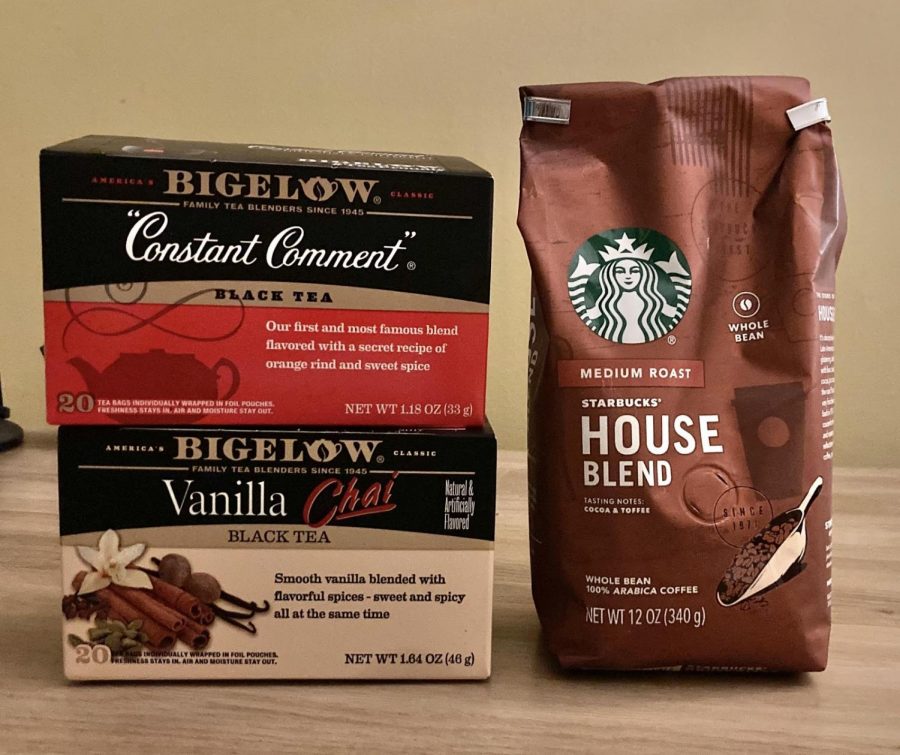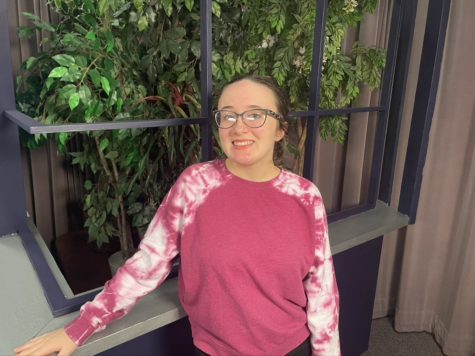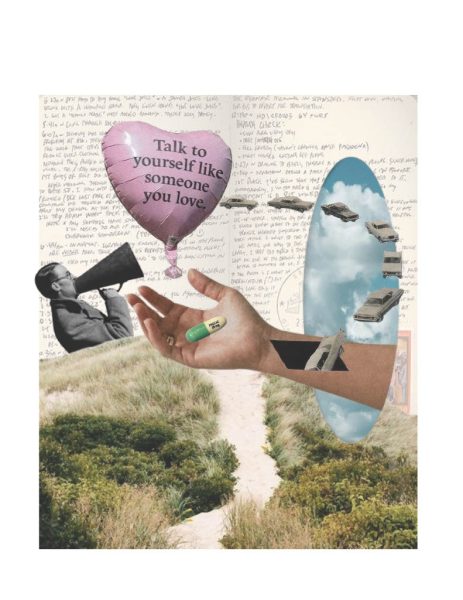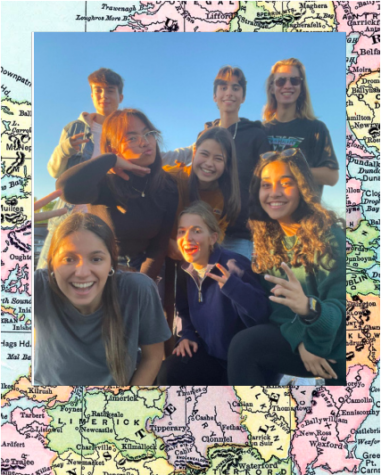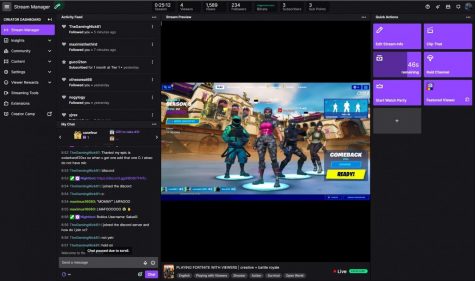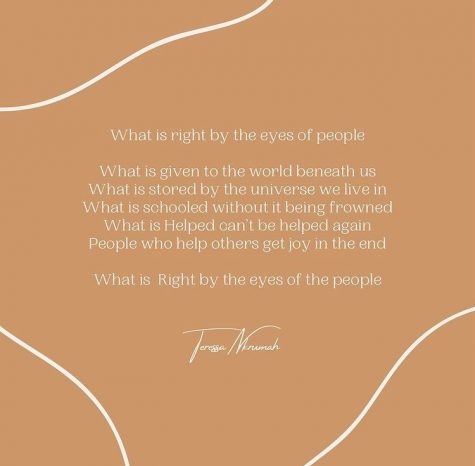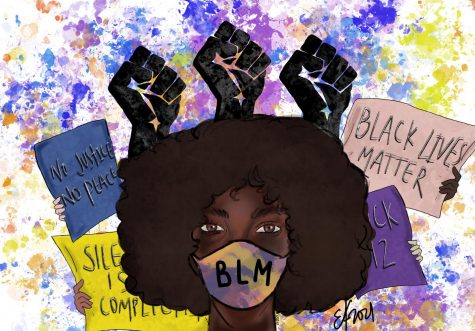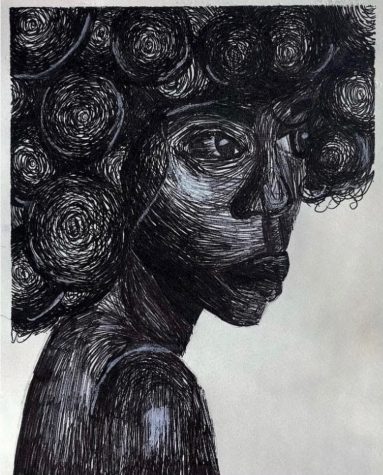Caffeine and Teens: A Budding Relationship
November 16, 2020
Teens are busier than ever these days. School takes up a huge chunk of the day, and the rest of the waking hours are filled with homework, sporting events, other extracurriculars, and coveted relaxation time. It’s easy to understand why we would stay up incredibly late when we have schedules packed to the brim with activities, and it doesn’t exactly help that we have to wake up early anyway. This is where caffeine comes into the picture.
Caffeine is a naturally-occurring drug that stimulates the nervous system, producing more energy. When one is feeling sleepy, a nice cup of coffee (one of the most caffeinated drinks) can perk them right up.
“It helps me stay motivated,“ says sophomore Josey Abbott, who drinks a cup of coffee and a few energy drinks a day. She mentions how caffeine gives her a quick and sudden burst of energy that helps her wake up in the morning.
There are a variety of other reasons one might frequently consume caffeinated products. Some, like sophomore Eleanor Finne, simply enjoy the taste. Others like the mood lift that comes with the initial rush. There are even some health benefits attributed to caffeine; lifelong consumption may help prevent Alzheimer’s or Parkinson’s diseases, and chances are reduced of getting some cancers.
The allure of caffeine’s benefits may be why caffeine consumption among teens is on an upward trend. In a 2018 report, the National Coffee Association states a 14% increase in coffee consumption among teens ages 13 to 18, with a grand total of 4 in 10 teens drinking it.
Several other studies have been done to determine just how many teens feel the effects of caffeine on a daily basis. One study done by Brescia University in Canada found that roughly 11% of teens drank caffeinated beverages every day. An unofficial Twitter poll created by ENN’s staff found the number to be much higher; almost 63% reported drinking caffeinated beverages every day (however, take these numbers with a grain of salt as sample sizes vary by study).
Even with these benefits, and with consumption rates rising, it’s important to consider the question “how much caffeine is too much”? The American Academy of Pediatrics recommends that teens should consume 100 milligrams of caffeine or less per day, about the same as one cup of coffee.
However, many teens end up exceeding that limit. An article from Medical News Today states that the number for some can be over a staggering 800 mg, bypassing even the limit for adults.
Levels of the stimulant vary depending on the product. A venti Starbucks latte contains 150 mg, already over the teen limit, while a venti Caffè Americano has 300. It’s not just limited to drinks, either, because coffee-flavored products and even chocolates contain at least a few milligrams.
The most egregious example of excessive amounts of caffeine can be found on the ingredients label of energy drinks. One can of Bang Energy alone contains 300 mg, three times the recommended amount – and that’s after they lowered it from the previous 357. Monster is another offender, clocking in at 160 mg, while Red Bull and Mountain Dew have anywhere from 54 to 148 mg, depending on the can size.
Caffeine is also known to cause unpleasant side effects if one drinks too much too often, or if they go cold turkey and stop consumption. Such symptoms include nausea, gastrointestinal problems (like diarrhea), and even cardiovascular issues. There’s a whole other list of mental side effects like irritability, insomnia, and anxiety. Arguably the most well-known side effect is a sudden increase of energy, which both Abbott and Finne can confirm, describing the sensation as your “mind racing”.
So, what can we do as students regarding this caffeine craze? Health experts suggest turning to decaffeinated drinks, or slowly cutting down the amount you consume.
But luckily for us, some caffeine can be useful and even healthy. EPHS even has a coffee shop in the East Commons you can turn to if you really need some coffee to kick off your day. You will feel more alert, and Abbott notes how it helps her get more done during the day.
Just make sure you’re taking it in moderation, and don’t use it as an alternative to sleeping. Then you’ll end up drinking more coffee and the torturous cycle of insomnia will continue until the end of time.


